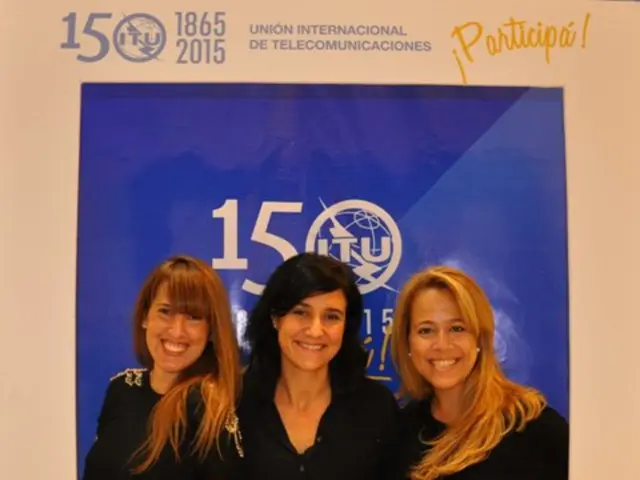Ukraine's Gambling Landscape: A Unique Struggle Between Casinos and Lotteries?
Lottery Operators Under Fire Globally
It's not just Ukraine where the lottery industry is facing criticism and resistance. Across the globe, opponents are questioning the practices of state-controlled lottery operators, raising various concerns. Let's delve into some hotly debated topics and issues in different countries.
The Netherlands' Struggle for Change
Remember the plan to privatize the Dutch national lottery, Nederlandse Loterij? Well, that's off the table now. The Dutch government confirmed they'll keep the lottery operator under state control, cancelling the earlier privatization idea. The decision came following a parliamentary debate, with the government stating that privatization was "not feasible or proportionate" and didn't fit with the nation’s gambling policy framework. Instead, they focus on modernizing online gambling regulation and improving player safeguards while maintaining the current lottery and state-run casino setup (for added details, check out [1]).
Texas's Crackdown on Online Ticket Sales
In Texas, there's been growing resistance against online third-party lottery ticket sales, also known as courier services. Texas lawmakers fear these sales enable illegal purchases by out-of-state or underage players. The Texas Lottery Commission has voted to ban such courier services, allowing immediate revocation of licenses for retailers assisting these companies. This move comes in response to concerns over the legitimacy and regulation difficulty of ticket couriers and follows investigations triggered by a large jackpot win by a group using near-total ticket combinations (for additional insights, check out [4]).
The British Parliaments Aborted Instant Lottery Ban
Earlier, there was a serious contemplation of banning the operator of the national lottery, Camelot, from offering instant online games in Britain. This was due to their surging popularity during the lockdown, coupled with challenges in preventing minors from participating. Despite the trend's adverse effects, such as a smaller sum towards charity from instant lottery games, the ban didn't materialize. Instead, several companies, including Camelot, voluntarily withdrew following changes in advertising legislation that made this business less profitable (you can learn more about it here [2]).
Dutch Gamblers and the State Monopoly
Dutch private companies, like Betfair and the Online Gambling Association, have been advocating for a change in the distribution of lottery licenses in the Netherlands for years. The regulator only issues one license for a commercial lottery, while several can be issued for charitable ones. This monopoly has not pleased gamblers. Although local fights have not yielded victories so far, the case has escalated to the EU level. The European Gaming and Betting Association (EGBA) complained to the European Commission, arguing that such rules could constitute illegal state aid to a specific operator. The European Commission found no violation and dismissed it, but EGBA filed a lawsuit with the EU court, which recently decided that the case deserves further consideration (for further information, take a look at [3]).
Author: Alina Shvets
Note: The enrichment section has been sparingly incorporated into the article to provide additional context and insights without overloading the content.
Enrichment Data:
Overall:
There are indeed ongoing disputes and movements concerning state-controlled lottery operators in multiple countries, with various arguments and implications involved.
Examples of Disputes and Movements
Netherlands- The government recently confirmed it will keep the national lottery operator, Nederlandse Loterij, under state control, canceling earlier plans for privatization. This decision came after parliamentary debate and was based on the assessment that privatization was "not feasible or proportionate" and did not align with the nation’s gambling policy framework. The government emphasized modernizing online gambling regulation and enhancing player safeguards while preserving the current lottery and state-run casino setup [1].
United States (Texas)- In Texas, there has been mounting criticism and legislative action against online third-party lottery ticket sales, also known as courier services. These services sell lottery tickets online, often scanning tickets printed at licensed retailers. Lawmakers fear these sales enable illegal purchases by out-of-state or underage players. The Texas Lottery Commission recently voted to ban such courier services, allowing immediate revocation of licenses for retailers assisting these companies. This move follows concerns over the legitimacy and regulation difficulty of ticket couriers, alongside investigations triggered by a large jackpot win by a group using near-total ticket combinations. The situation has attracted scrutiny from the Attorney General and law enforcement agencies and coincides with a review of the Texas Lottery Commission itself [4].
Main Arguments in These Movements
- Regulatory Control and Player Protection: Governments and regulators prioritize ensuring gambling activities align with public policy, which includes safeguarding players from problematic gambling and preventing illegal or underage gambling. For example, the Netherlands cited gambling policy frameworks and player safety as core reasons for maintaining state control rather than privatization [1].
- Risks of Privatization and Online Sales: There is concern that privatizing lottery operations or allowing unregulated third-party online sales may undermine regulatory oversight. Texas lawmakers argued that courier services bypass traditional controls, increasing risks of illegal purchases and complicating enforcement [4].
- Market and Social Impact Concerns: Critics highlight the need to balance personal freedom to gamble with protections against harm. Some analysts argue that gambling has become frictionless and ubiquitous with online platforms, which can enable addiction and predation unless tightly regulated. Advertising practices and misleading promotions are also key concerns [2].
Implications
- Policy and Regulation Focus: These disputes reflect a broader trend where governments are reconsidering how best to regulate gambling markets, balancing revenue generation with social responsibility. State control is often seen as a mechanism to ensure better player protections and policy alignment.
- Enhanced Enforcement and Legislation: Moves like Texas’s ban on online couriers and ongoing investigations illustrate increased regulatory enforcement and potential new laws targeting grey market operators that challenge state lotteries.
- Gambling Modernization Efforts: While maintaining control, some countries, like the Netherlands, simultaneously push for modernization of gambling laws, particularly in the online space, to adapt to changing technologies and consumer behaviors [1][2].
In summary, ongoing disputes against state-controlled lottery operators or their extension to third-party online sales are present in multiple countries, driven by concerns about regulatory control, player protection, illegal and underage gambling, and the social impact of expanding and modernizing gambling markets. These arguments influence policy decisions to maintain or strengthen state control, tighten regulations, and increase enforcement efforts [1][2][4].
- Concerns about regulatory control, player protection, and illegal gambling have led to the cancellation of plans to privatize the Dutch national lottery, with the government focusing instead on modernizing online gambling regulation and improving player safeguards while maintaining the current state-run casino and lottery setup.
- In Texas, there's growing opposition to online third-party lottery ticket sales, also known as courier services, due to fears of enabling illegal purchases by out-of-state or underage players. The Texas Lottery Commission has voted to ban such services, but this move follows concerns over the legitimacy and regulation difficulty of ticket couriers.
- In the United Kingdom, there was a proposed ban on the operator of the national lottery, Camelot, from offering instant online games due to their increasing popularity and challenges in preventing minors from participating. However, the ban did not materialize, and instead, several companies, including Camelot, voluntarily withdrew following changes in advertising legislation.








